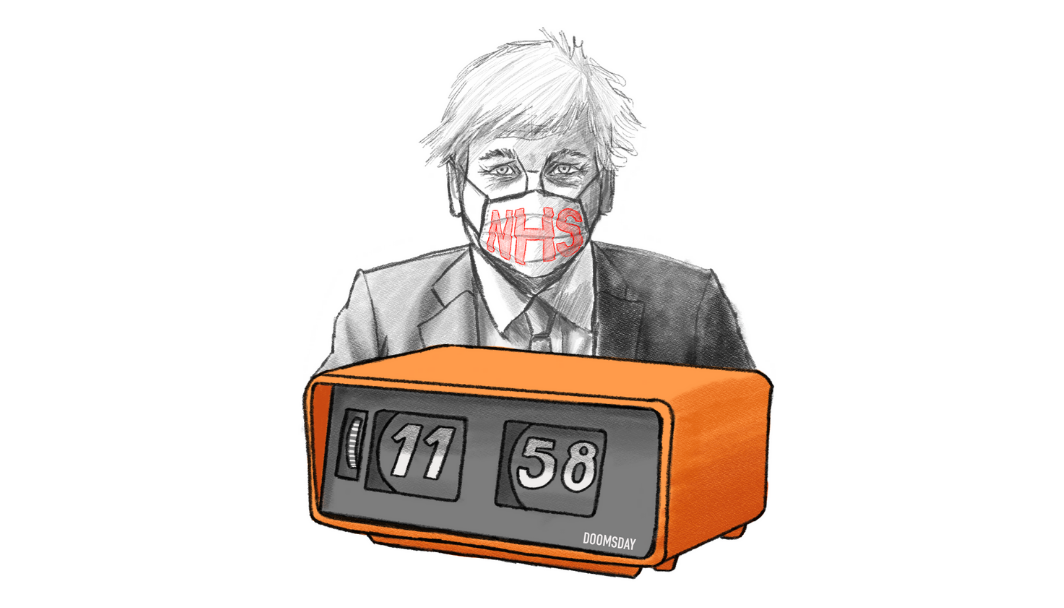There is a real end of days vibe in the world at the moment. I can’t be the only one thinking ‘God.. who knew the apocalypse could be so tedious?’ Revelations it ain’t. Not meaning to be ‘that’ guy, but spending quarantine being productive feels a little like rearranging the deck chairs on the world’s dullest sinking ship. Just remember, this sinking ship is not a pleasure cruise, it is an oil tanker filled with all of humanity’s worst impulses and tendencies. Let’s change that. I apologize for the doom-laden prophesisation, my access to Dutch student finance is contingent on my blogs being comprised by at least 15% of doomsday naysaying. Now that I have made good on my obligation towards the Dutch government, we can delve into the feel-good stuff. Apart from the obvious, what can we expect from coronavirus?
Wartime socialism
Boris Johnson and his party of free-market fetishists orchestrated wholesale destruction of the safety nets designed to protect society’s most vulnerable from destitution. The man’s greasy and adulterous port stained fingers are covered in blood. His government has finally decided to take certain (limited) measures to mitigate the very worst of the fallout.
If such a self-serving husk of a man is willing to make the UK welfare state slightly less hellish, there is room for the electorate to acknowledge the need for radical social reforms. The modern world is fragile and precarious, the coronavirus has shown this beyond reasonable doubt, and social measures must be fit for purpose.
Dry run for extinction
The coronavirus is not the end of the world but it’s testing the batteries on the alarm of existence. The chaos following the pandemic has proven us to be woefully unequipped for major crises. Now, if you think coronavirus has hit the supply chain hard, just wait for climate change. The virus is a warm-up act and climate change is the true extinction headliner.
The hope is that this suffering will lead to a period of enlightenment that encourages an unprecedented global response to save our planet from ourselves. We can no longer afford to be so flippant with our existence and this crisis could force governments, across the globe, into active change.
The relationship with work and workers
There is a very real chance that our views of ‘professional’ life will be reformed. Throughout the crisis, it’s not just the emergency services that are saving lives. Retail workers, cleaners and many other professions are providing the last line of defence against society’s collapse into the abyss.
Governments, businesses and the rich must acknowledge the role all workers play in society, not just ‘wealth creators’. Yet, a post-coronavirus world must be built on solidarity and the understanding that, regardless of the role, employees are not expendable.
Things it would be helpful to know before the revolution
And hey comrade just remember that you have learned so much in quarantine. These new skills are sure to assist you in the coming revolution. I mean you now understand that hoarding toilet paper is a ridiculous idea. But did you also know that you can make steamed milk in the microwave? This will be especially useful once, tax-avoiding caffeine peddlers, Starbucks are brought into public ownership.
Hold tight
People are panicked and that is entirely understandable. The coronavirus brings us into uncharted waters and is a legitimate concern that has or will impact us all. Is it going to be painful, sad and upsetting? More than likely. In light of that, we must minimise human contact, take the skills we learn from quarantine and advocate for the changes that make the world a stronger, more empathetic place.
Author: Connor Lundy
Editor: Kat Nivera
Illustration: Chelsea Blijlevens


